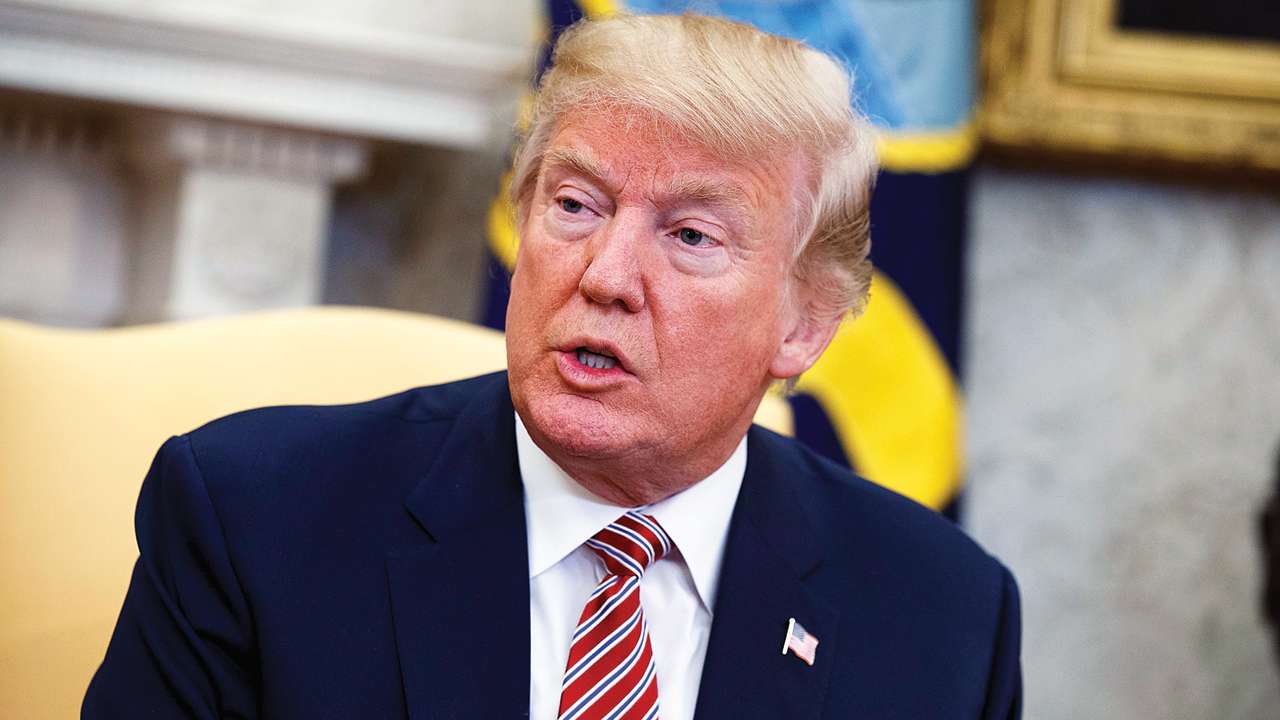
In the first year of his presidency, Donald Trump has taken several initiatives to shake up the traditional direction of US foreign policy, with his focus on protecting and promoting the interests of American people under his grand ‘America First’ strategy. Trump pulled the US out of the Trans-Pacific Partnership, refused to certify Iran Nuclear deal to US Congress, took a tough stand on North Korea’s nuclear programme and the immigration issue, questioned ‘One China Policy,’ and strongly denounced Chinese expansion in South China Sea, reopened discussions on the future of the North America Free Trade Agreement, withdrew the US from Climate Change Agreement and recognised Jerusalem as the capital of Israel. Consequently, the American President's decisions have kept several allies and enemies of the US clueless about the future course of Trump administration's policy towards them.
True, during the initial months of the Trump administration there was also confusion and uncertainty about the US’s approach towards South Asia. Soon after being elected as President, Trump’s strong stand on issues of H-1B visa and immigration, his appreciation for Pakistan Prime Minister Nawaz Sharif, Trump’s accusation that India was seeking billions of dollars from advanced countries in exchange for its support for the Paris Climate Change Agreement caused serious concerns in the Indian foreign policy establishment about India-US ties under
the new US administration.
However, before the relationship between New Delhi and Washington could become fragile Prime Minister visited the US at the invitation of President Trump and the two leaders established strong personal chemistry with each other. In a significant move, the US has designated Hizb-ul Mujahideen leader Syed Salahuddin as a special designated terrorist. Trump expressed his commitment to expand and deepen the strategic partnership and advance common objectives with India. It was in this context that US Defence Secretary Jim Mattis visited India and said “India and the United States share a strong and vibrant strategic partnership,” and “As India takes its rightful place at the global table, India will find the United States to be a steadfast friend and partner.
These high-profile political engagements, in turn, sent strong singles about deepening ties between India and the US, with Mattis agreeing to re-energise the Defence Technology and Trade Initiative (DTTI) as a mechanism to promote technology sharing as well as co-¬development and co-production efforts. This, in turn, will greatly help the Indian military modernisation programme.
The two sides have also focused on strengthening cooperation in the Indo-Pacific and respecting freedom of navigation, over-flight and commerce throughout the region is a matter of great relief for India.
This is because these statements obliquely are aimed at China’s assertive posturing in the South China Sea. With an attempt at countering China’s Belt and Road Initiative, the joint statement, supp¬orting regional economic conn¬ectivity, has sought respect for sovereignty and territorial integ¬rity, the rule of law and environment. The US’ role has been very crucial in India becoming the 43rd member of the Australia Group last month. The Trump administration has approved the sale of unarmed surveillance drones to India. Getting 22 Guardian MQ-9B unmanned aircrafts, it will enhance India’s maritime surveillance capability. The revival of the Quadrilateral Security Dialogue among the US, India, Japan and Australia last year has also indicated about the expansion of the bilateral engagement between New Delhi and Washington.
With regard to Pakistan, the Trump administration made it clear that Islamabad has to confront terrorism in its all forms. Realising that Pakistan is reluctant to cooperate in counter-terrorism operations, the US has decided to withhold disbursement of $255 million to Islamabad. While announcing his South Asia Policy in August 2017, President Trump became, perhaps, the first US top leader to openly say that “Pakistan often gives safe haven to agents of chaos, violence, and terror.” Even in the first tweet of 2018 President Trump said, “The United States has foolishly given Pakistan more than 33 billion dollars in aid over the last 15 years, and they have given us nothing but lies & deceit, thinking of our leaders as fools.” Consequently, the US State Department announced to freeze most military aid to Pakistan, amounting up to $1.3 billion.
On the issue of promoting peace, security, stability and development in Afghanistan, Trump’s South Asia Policy mentioned that the US will deploy more troops in Afghanistan without fixing a timeline for the return of US forces. In fact, Trump said, “from now on victory will have a clear definition: Attacking our enemies, obliterating ISIS, crushing al- Qaeda, preventing the Taliban from taking over Afghanistan, and stopping mass terrorist attacks against America before they emerge.” Trump’s South Asia Policy has authorized its commanders in the region to take action against terrorists both in Afghanistan and Pakistan. In this regard equally important is the fact that the new US administration does not consider Pakistan its non-NATO ally any longer and that Trump’s preference to India over Pakistan will contribute to stability in Afghanistan. Certainly, given former President George W Bush’s lukewarm approach towards India on the Afghanistan issue and the flip-flop in Obama’s approach on the same issue, Trump’s new strategy is a welcoming development for India, because this move is not only a candid acceptance of India as a regional and global power, but it will also help India increase its strategic depth in Afghanistan.
While the Trump administration has clearly indicated its preferences in South Asia, in the next four years it would be interesting to see how Trump addresses India’s concerns about the H-1B visa issue, what concrete steps the US takes to expand engagement with India in the field of high-technology and to what extend Trump can succeed in changing Pakistan’s behaviour on the counter-terrorism issue at a time when China is openly backing Islamabad among other issues.
The author is Research Fellow, Chennai Centre for China Studies, Chennai